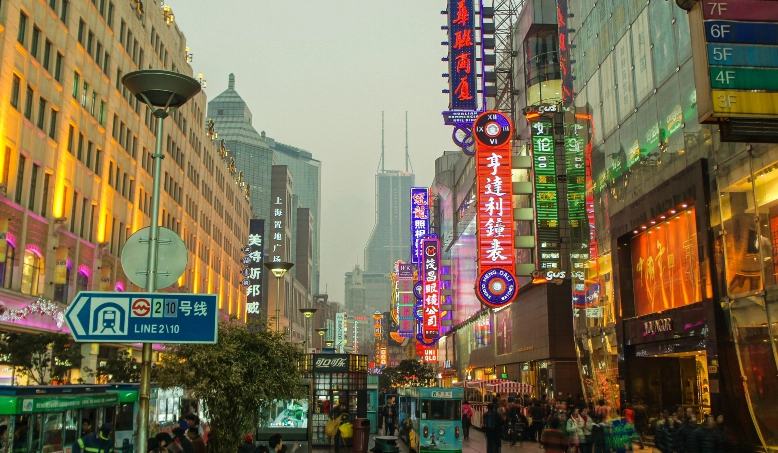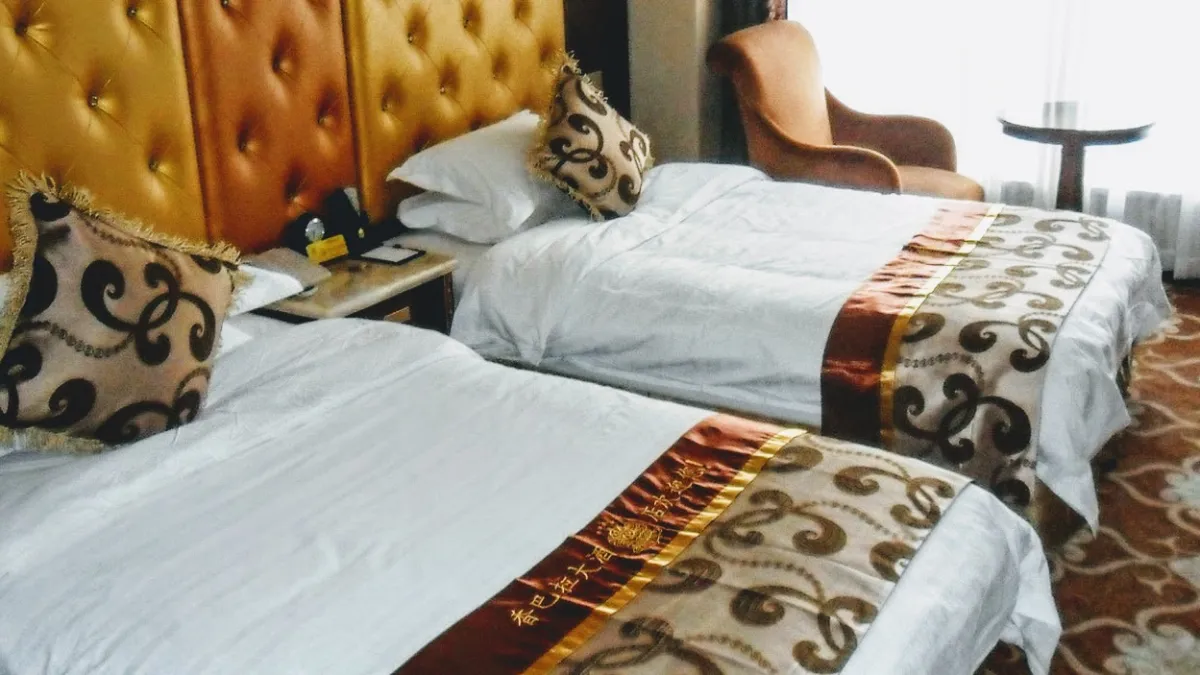Planning a trip to China in 2025? You’re in for an unforgettable adventure, but navigating its unique culture and logistics can feel daunting. From visa-free travel to mastering WeChat Pay and dodging internet restrictions with a trusty VPN, the right China travel tips can transform your journey. As a seasoned traveler, I’ve distilled my real-world experience into practical, insider advice to help you explore China like a pro. Whether you’re dreaming of the Great Wall, craving authentic dumplings, or tackling high-speed rail, this guide covers everything you need to know. Ready to make your China travel seamless and exciting? Let’s dive into the ultimate travel tips for 2025!
Understanding China’s Visa and Entry Requirements
If you’re traveling to China, it’s important to know the visa rules. Until December 2025, citizens from 38 countries, including the US, can enter China visa-free for short stays—great news if you qualify. For everyone else, you’ll need to apply for a visa through the nearest Chinese embassy or consulate ahead of your trip. The process usually involves submitting your passport, a completed application form, a recent photo, and sometimes proof of travel plans.
Also, if you’re coming from or have recently visited a country with Yellow Fever risk, China requires you to show a valid Yellow Fever vaccination certificate. This helps protect against the spread of disease.
Tip: Always double-check the latest entry requirements on official government websites like GOV.UK or the US State Department before you book your trip, as policies can change quickly.
Mastering Payments in China
When it comes to payments in China, mobile wallets like WeChat Pay and Alipay rule the roost. Most places—from restaurants to street vendors—prefer these apps over cash or cards. Setting them up from the U.S. can be tricky, so download both apps before you leave and link your account to a Chinese bank or use international setups where possible.
Cash is still useful, especially in rural areas or smaller shops where mobile payments aren’t accepted. For easy cash withdrawals, use Bank of China ATMs, as they are more likely to accept foreign cards.
Speaking of cards, don’t expect widespread acceptance of foreign credit or debit cards. Mastercard and Visa are accepted more often, but American Express isn’t usually accepted, so bring backup payment options.
Aura Tip: Download WeChat and Alipay before your trip for smoother, hassle-free payments during your stay. This little prep saves tons of time and avoids payment headaches.
For more travel hacks and budgeting tips, check out our budget and accommodation hacks for a smoother trip!
Navigating Internet and Communication
When traveling in China, be prepared for strict internet restrictions. Popular sites like Google, Instagram, Facebook, and WhatsApp are blocked. To access these platforms, you’ll need a reliable VPN. From my experience, Astrill works well in China, while popular options like ExpressVPN or NordVPN often struggle or get blocked.
For easy connectivity, consider getting a Chinese SIM card or eSIM upon arrival. This gives you stable data access without relying on spotty Wi-Fi. You can buy them at the airport, major train stations, or official stores like China Mobile or China Unicom.
Aura Tip: Download and use WeChat as your main communication app. It handles messaging, payments, and even translations, making it an essential tool to navigate daily life in China smoothly.
For more useful travel insights, check out Travel Tip Tuesday.
Cultural Etiquette and Social Customs
When visiting China, it’s important to respect local customs and dress conservatively. Avoid revealing clothing, especially in more traditional or rural areas, to blend in and show respect. In public, keep behavior polite and low-key—loud or aggressive actions can stand out negatively.
Chopstick etiquette is another key cultural point. Never stick chopsticks upright in a bowl of rice, as this resembles incense sticks used at funerals and is considered bad luck. Instead, rest them neatly on the holder or bowl edge when not in use.
It’s wise to steer clear of sensitive topics like Tibet’s history, politics, or any critical comments about the government. These subjects can be deeply personal and controversial, so it’s best to keep conversations light and positive.
Aura Tip: Learning basic Mandarin phrases for greetings and thanks goes a long way in creating polite interactions and showing respect for the culture. Simple phrases like “Ni hao” (hello) and “Xie xie” (thank you) can open doors and smiles during your travels.
Top Destinations and Experiences in China
China is packed with amazing spots you won’t want to miss. Here are the must-visit places to add to your China travel guide:
- Beijing: Explore the Forbidden City and take a hike on the Great Wall. For a less crowded experience, avoid the popular Badaling section and try Mutianyu or Jinshanling instead.
- Xi’an: See the incredible Terracotta Army, a true archaeological wonder.
- Shanghai: Modern vibes with a stunning skyline, plus historic areas like the Bund.
- Zhangjiajie: Famous for its surreal sandstone pillars, this place inspired the landscapes in the movie Avatar.
For unique experiences:
- Harbin Ice Festival: Visit in winter to see jaw-dropping ice sculptures and light displays.
- Yangtze River Cruise: Take a scenic trip on the Yangtze for a relaxing way to experience China’s natural beauty.
- Beijing Hutongs: Wander these traditional narrow alleyways for a glimpse of old Beijing life.
Aura Tip: Use Trip.com to book your accommodations. It’s great for finding places friendly to foreign travelers and easy to navigate for English speakers.
Transportation Tips for Easy Travel
Getting around China is pretty straightforward once you know the ropes. For intercity travel, high-speed trains are your best bet—fast, comfortable, and reliable. For example, the train from Shanghai to Beijing takes about 4.5 hours, which beats flying when you factor in airport time. Booking tickets in advance is smart, especially if you’re traveling popular routes.
In major cities like Beijing, Shanghai, and Guangzhou, subways are clean and efficient. They cover most tourist spots, and signs are often in English. For shorter trips or places the subway doesn’t reach, Didi (China’s Uber) is the go-to taxi app—easy to use with English support.
A quick warning: avoid booking transport during big national holidays like Chinese New Year or Golden Week. Trains and flights get crowded, and prices spike sharply.
Aura Tip: If available, use smaller train stations. They tend to be less crowded and easier to navigate, making your travel a bit smoother.
For more travel planning insights, check out our tips for traveling during holidays.
Health and Safety Precautions
When traveling in China, having good travel insurance is a must. Before you go, check with your insurer about hospitals they recommend or partner with in China. This makes dealing with medical issues much smoother if something happens.
Vaccinations are key—make sure you’re up to date on Hepatitis A and B, and consider rabies shots if you’ll be around animals or rural areas. If Tibet is on your itinerary, prepare for altitude sickness with the right medication and advice.
Public restrooms in China can be hit or miss. Always carry your own toilet paper and hand sanitizer to stay comfortable and clean on the go.
Aura Tip: For any health concerns, visit tourist-friendly clinics in major cities like Beijing, Shanghai, or Guangzhou. They offer English-speaking staff and quality care, making them a safer bet for travelers.
Budget and Accommodation Hacks
Finding affordable places to stay in China is doable if you know where to look. Hostels can go for about ¥50-100 per night, which is great for budget travelers. If you want more comfort, luxury hotels are available, but expect a higher price tag.
A key heads-up: some hotels and guesthouses may refuse foreign guests. To avoid headaches, book through Trip.com which caters well to international travelers and ensures smoother check-ins.
Remember, China has a no-tipping culture, so you won’t have to worry about leaving extra cash for hotel staff or waiters. Also, steer clear of cheap bus tours that can be crowded, rushed, and sometimes less safe.
Aura Tip: Start your trip in Shanghai. It’s more English-friendly and easier for first-time visitors before diving into less touristy spots around the country.
Best Time to Visit China
The best time to visit China is during spring (March to May) and fall (September to November). These months offer mild temperatures, less rain, and comfortable conditions for sightseeing. Avoid the hot, humid summers and the cold, harsh winters in most regions for a more enjoyable trip.
Keep in mind regional differences when planning your visit:
- Hainan is perfect for winter travelers looking to escape the cold, with warm tropical weather.
- Tibet is best in summer months when temperatures are warmer and roads are more accessible.
Watch out for peak holiday seasons like Chinese New Year (usually late January or February) and the National Day Golden Week in early October. These times bring massive crowds and higher prices for accommodations and transport.
Aura Tip: Check festival calendars ahead of time. Avoiding major festivals and public holidays will help you skip crowds and make your trip smoother.
For more travel planning, you might also find these Italy travel tips helpful for understanding how to plan around busy holiday seasons.
Packing and Practical Tips
When packing for China, remember that the voltage is 220V, and most outlets use the standard Chinese plug. If you’re also planning to hit Hong Kong, bring a UK-type plug adapter since the plugs differ there.
Air pollution can be an issue in big cities like Beijing or Shanghai, so packing face masks is a smart move to protect your health, especially if you have any breathing sensitivities.
If you get invited to someone’s home, bringing a small gift like snacks or souvenirs from the U.S. is a nice gesture that locals appreciate.
Aura Tip
Pack light but don’t skip essentials like toilet paper (public restrooms can be hit or miss) and devices that are VPN-ready—since some popular sites and apps are blocked, having a good VPN setup before you go will keep you connected without hassles.










